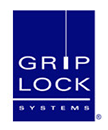Industry News
Green Lighting Campaign Urges DOE to Reduce Mercury, Adopt Stronger Lighting-Efficiency Standards
June 14, 2009
The Green Lighting Campaign submitted comments in response to the US Department of Energy's (DOE's) proposed Energy Conservation Standards for General Service Fluorescent Lamps and Incandescent Reflector Lamps. A group of environmental advocates, lighting consultants and local governments expressed concern that the proposed rule would hurt consumers and the environment by allowing continued sales of outdated lighting equipment although more energy-efficient, cost-effective replacements are readily available.
The group called on DOE to rewrite its lighting-efficiency standards to be at least as stringent and broad in scope as those adopted by the European Union under its Eco-Design Standards for Energy Using Products Directive. "Failure to adopt lighting-efficiency standards as strict as those recently agreed to in Europe will place the US further behind in demonstrating leadership on climate change and related environmental policy issues," said Alicia Culver, director of the Green Purchasing Institute.
The group noted that the latest European lighting-efficiency standards cover a much broader range of lighting categories than the DOE rule, including compact and circular fluorescent lamps, high-intensity discharge (HID) lamps (commonly used for street lighting), ballasts and luminaires. "While the US is regulating a handful of lamp categories, the EU is excluding only a handful of products," Culver added. The group also explained that European standards go farther in eliminating older lighting technology from the marketplace - phasing out nearly all T12, "preheat" and "first generation" T8 fluorescent lamps by 2012.
"Adoption of the current DOE proposal runs the risk of turning the US into a dumping ground for inferior lighting products that do not meet the EU's stronger energy-efficiency requirements," said Michael Bender, director of the Mercury Policy Project.
"Stronger energy-efficiency standards will also yield many ancillary benefits since modern fluorescent lamps typically last longer, contain less mercury, and emit a higher quality light than older, less-efficient models," Bender added.
The Green Lighting Campaign has offered to help DOE develop national lighting-efficiency standards that meet the Energy Policy and Conservation Act goal of achieving the maximum improvement in energy efficiency that is technologically feasible and economically justified and effectively addresses the nation's pressing global climate change and energy issues.
The DOE is expected to respond to comments received later this summer and release a final rule in August.
Those signing on to the letter to DOE include:
Alicia Culver, Green Purchasing Institute/Green Lighting Campaign; Berkeley, CA
Michael Bender, Mercury Policy Project/Green Lighting Campaign; Montpelier, VT
Scot Case, EcoLogo/TerraChoice; Philadelphia, PA
Linda Christopher, Grassroots Recycling Network; Cotati, CA
Tom Lent, Healthy Building Network; Berkeley, CA
Stan Walerczyk, Lighting Wizards; Walnut Creek, CA
Eric Uram, Mercury-free Wisconsin; Madison, WI
Matt Prindiville, Natural Resources Council of Maine; Augusta, ME
Bill Sheehan, Product Policy Institute; Athens, GA
Karl Bruskotter, Santa Monica Office of Sustainability and the Environment
Stacey Foreman, Portland Oregon Bureau of Purchases
More information:
http://mercurypolicy.org/wp-content/uploads/2009/06/gpi_comments_on_doe_lighting_rule061209.pdf









































